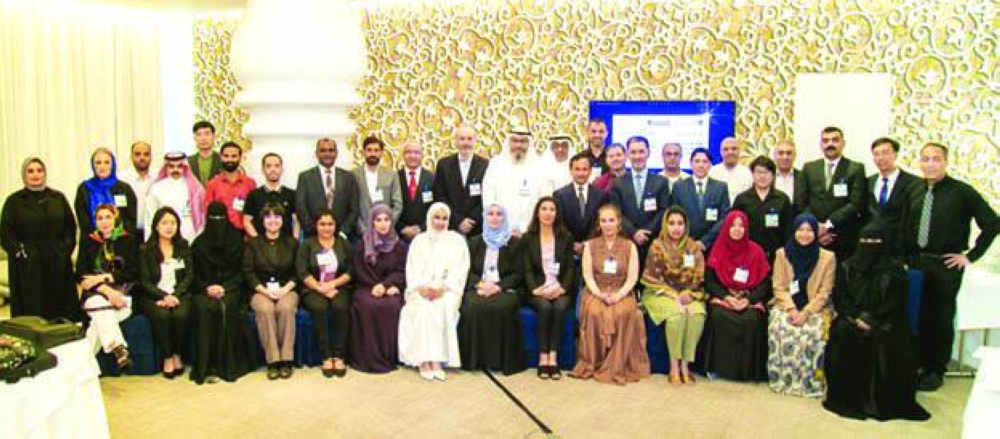Qatar hosted a regional workshop titled 'Regional Workshop on External Dosimetry with Particular Focus on Extremity and Monitoring of the Eye Lenses', which was organised by the International Atomic Energy Agency (IAEA) in co-operation with the Ministry of Public Health (MoPH) and Hamad Medical Corp (HMC).
The important event aims to foster interactive discussions on how to establish, improve and possibly harmonize the external dosimetry monitoring capabilities within Asia and the Pacific Region, particularly for extremity and lens of the eyes in compliance with the requirements of the IAEA International Safety Standards.
Dr Abdullatif Mohamed al-Khal, Deputy Chief Medical Officer and Director of the Department of Medical Education at HMC, stressed the importance of the themes and topics of the workshop, in which a group of the best specialised experts will participate.
Dr Mohamed Hassan Kharita, Assistant Executive Director of the Occupational Health and Safety Department of Hamad Medical Corp and the workshop director, welcomed the experts and participants and acknowledged the efforts of the IAEA and MoPH in their collaboration efforts with HMC to conduct this event.
The purpose of this regional workshop was to foster interactive discussions on how to establish, improve and possibly harmonise the external dosimetry monitoring capabilities for extremity and lens of the eyes in compliance with the requirements of the international safety standards.
The focus was on the appropriate protective actions that need to be taken to ensure that doses to the lens of the eye do not exceed the annual dose limit. Workers potentially at risk include medical specialists operating image-guided equipment in interventional cardiology and interventional radiology, medical specialists performing some tasks in nuclear medicine, emergency response workers and industrial radiographers.
The discussions made during this workshop indicate that most of the participants are aware of the relevant requirement of the international safety standard. The discussions/presentations carried out during the workshop certainly enhanced the participants knowledge and understanding of the implementation of extremity and eye lens monitoring.
During the discussion, a lack of operation of national dose registries and appropriate management systems was identified. These kinds of workshops and training courses need to be continued in the future to enable the process of improving and disseminating knowledge and sharing experiences.

